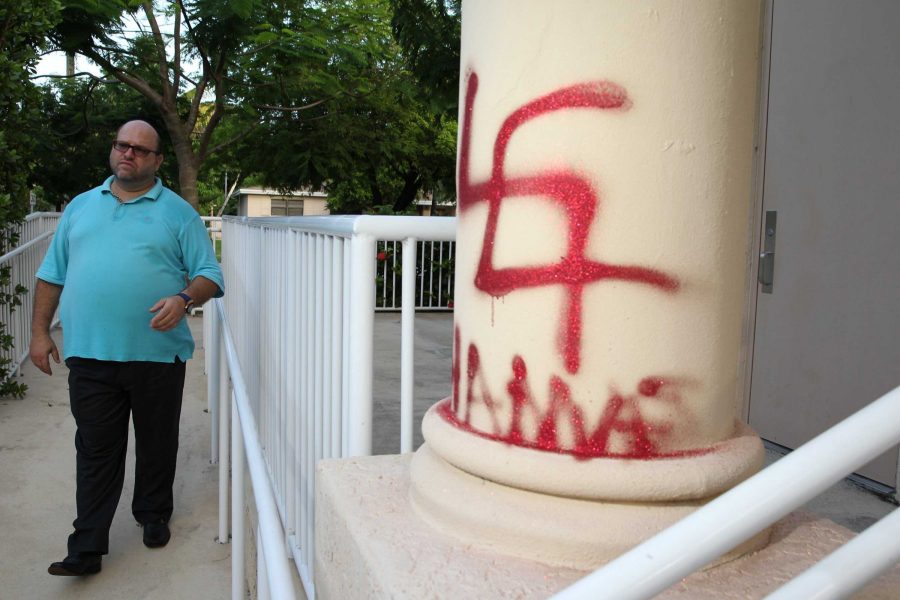Anti-Semitism goes global
A swastika drawn on a Miami synagogue. This kind of vandalism is highly common, especially in the American south. Nazi symbology has found its way into religious centers, homes, and even schools.
The invisible prejudice has plagued our world since ancient history. Animosity toward the Jewish people did not end with the Holocaust as modern society would like to believe. Anti-Semitic activity has been on the rise in recent days.
“Anti-Semitism is something a lot of people don’t see in this school, but it is still an extremely large problem in the world,” junior Max Weiss said.
Actions have included the Paris hostage situation in a kosher supermarket, a Jewish cemetery in Germany being desecrated, and hostility toward a Jewish student running for judicial court at UCLA.
“I believe Anti-Semitism is a major problem in the United States. Many people dislike Jews because of the Israeli-Hamas conflict,” junior Amanda Peck said.
While Operation Protective Edge may have sparked some aggression against Jews (due to obvious affiliation with Israel), what many of these aggressors forget is that not every Jew is a Zionist.
According to a Trinity College report, out of 1,157 university students on 55 different campuses, 54 percent experience or witnessed Anti-Semitism on their campus within the first six months of the 2013-2014 school year.
It is hypocritical to fight against social injustices while committing the social injustice of discriminating people based on their religion, and finally some leaders such as French Prime Minister, Manuel Valls have spoken out.
“I say to the people in general who perhaps have not reacted sufficiently up to now, and to our Jewish compatriots, that this time [antisemitism] cannot be accepted,” Valls said in an address to the National Assembly.
It is important that we do not forget that the actions of some do not represent the whole.
Your donation will support the student journalists of Sycamore High School. Your contribution will allow us to purchase equipment and cover our annual website hosting costs.



